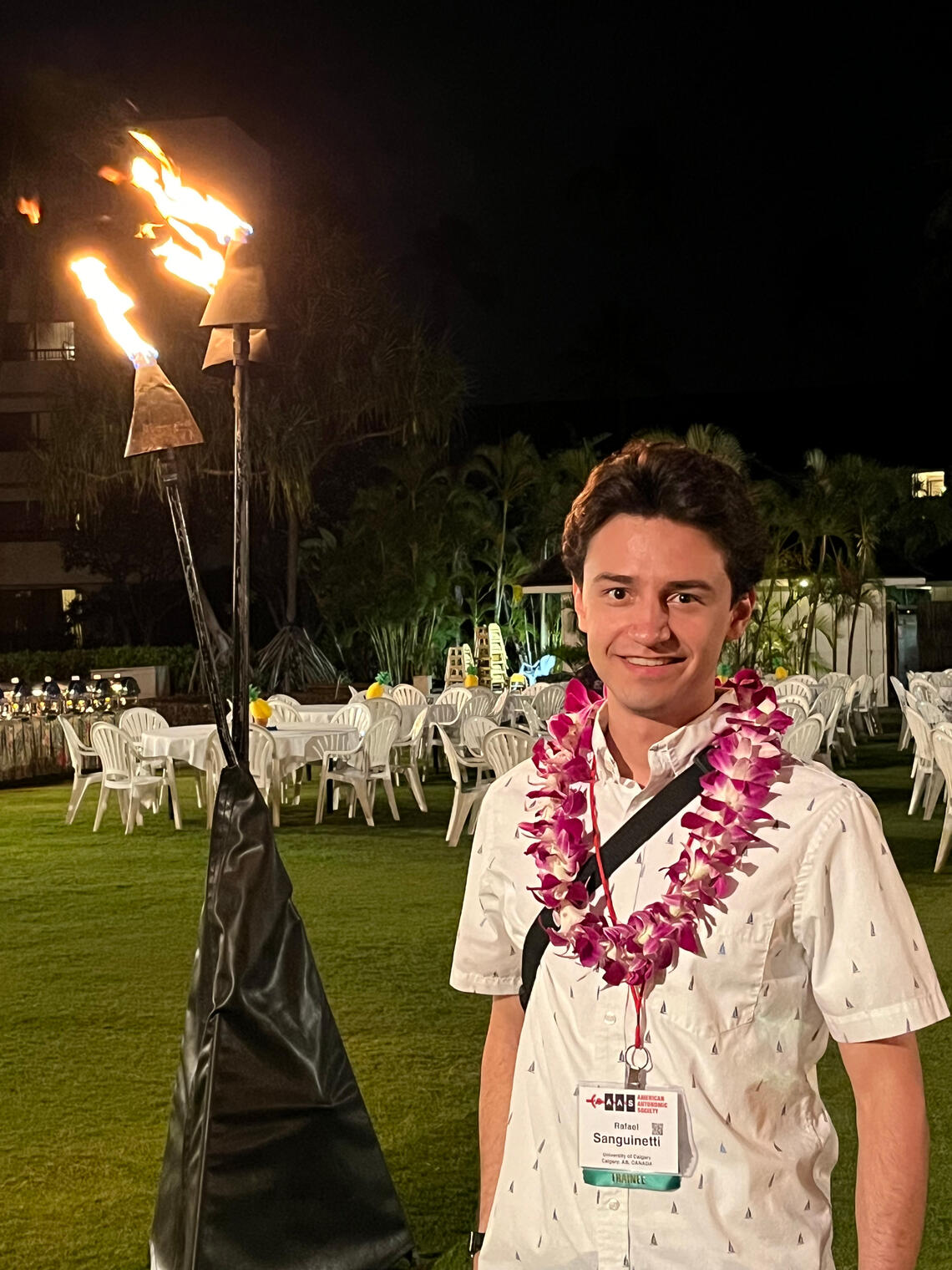
May 10, 2023
Snorkeling, sea turtles and autonomic disorders: My unforgettable experience in Maui

Greetings from Maui, Hawaii! I am Rafael Sanguinetti, a fourth-year honours Biomedical Sciences student in the Bachelor of Health Sciences program at the University of Calgary. My interests lie in neuroscience and cardiovascular physiology, and I was fortunate to join Dr. Aaron Phillips's spinal cord injury research team during my undergraduate career, where I completed my honours thesis project focusing on investigating neurogenic shock during spinal cord injury using optogenetics.
With funding from Scholars Academy’s Career and Professional Development Award, I attended the American Autonomic Society’s 33rd International Symposium on the Autonomic Nervous System from November 2nd to 5th, 2022, in Maui. This conference was directly relevant to my research and covered various autonomic disorders, including orthostatic hypotension and autonomic dysreflexia, which the Phillips Lab specializes in.
The symposium brought together clinicians, scholars, entrepreneurs, and students from around the world to discuss the latest developments in autonomic physiology against the beautiful backdrop of Maui. Attending this event provided unique networking opportunities and allowed me to develop my public presentation skills. I presented a poster on our laboratory’s work developing a wireless non-invasive blood pressure sensor, which garnered significant attention as other research groups worldwide are also exploring innovative ways to measure blood pressure.
During the conference, I had the chance to attend lectures and panel discussions run by esteemed researchers. These sessions provided me with a more profound understanding of the root causes and long-term effects of autonomic disorders. I also became familiar with existing treatments for patients and the obstacles encountered by healthcare professionals when addressing these conditions. These conversations highlighted recent breakthroughs and continuous research initiatives focused on improving diagnostic instruments and therapies for patients. Overall, this experience expanded my understanding and admiration for the intricate aspects of studying and managing autonomic disorders.
Outside the conference, I immersed myself in Maui's culture, attending a luau, participating in a Hawaiian dance, and savouring the local cuisine. I even had the chance to go snorkelling and encounter a sea turtle up close! Some of the highlights of my trip were meeting my supervisor's Ph.D. supervisor, researchers from papers I have read, and fellow autonomic researchers from the University of Calgary and beyond. These connections have expanded my professional network and deepened my appreciation for the global scientific community.
I am deeply grateful to the Scholars Academy program for supporting my attendance at the symposium. I would also like to thank the Phillips Lab for granting me the opportunity to work in a multidisciplinary team of neuroscientists, cardiovascular scientists, engineers, data scientists, entrepreneurs, and more. As I continue to explore the fascinating field of spinal cord injury research, I eagerly look forward to contributing to the scientific community as a future physician and researcher.
